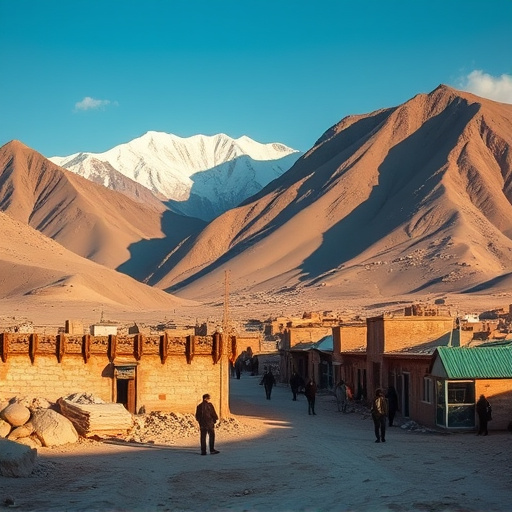Afghanistan's diverse landscape and complex history necessitate thorough preparation for travelers. Key considerations include valid passports, necessary visas, vaccination, climate-appropriate meds, and first aid. Stay informed about political events, local customs, and security risks, especially in urban areas and during transportation. Engage reputable tour operators, register with embassies, use reliable communication, and procure comprehensive travel insurance. Respect cultural norms, adapt to regional differences, and be mindful of persisting issues for a safer journey through Afghanistan's rich historical sites.
Traveling to Afghanistan requires a thorough understanding of its unique security landscape and careful preparation. This guide outlines essential safety considerations, from securing crucial travel documents and visas to navigating public spaces and transportation safely. It emphasizes health and wellness preparations, emergency readiness, and evacuation plans, equipping you with vital knowledge for a secure journey in Afghanistan.
- Understanding Afghanistan's Security Landscape
- Essential Travel Documents and Visas
- Health and Wellness Preparations
- Safety Tips for Public Spaces and Transportation
- Emergency Preparedness and Evacuation Plans
Understanding Afghanistan's Security Landscape
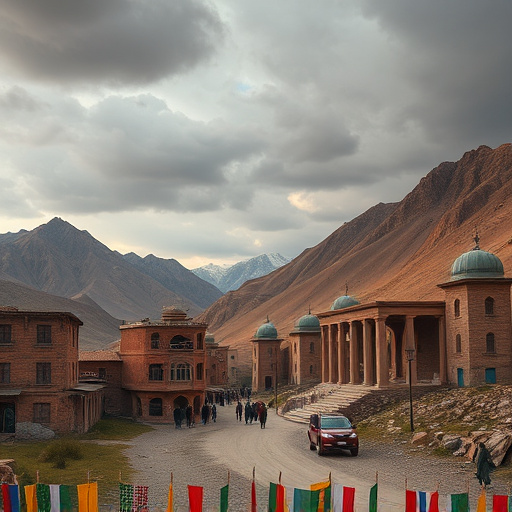
Afghanistan’s security landscape is complex and ever-evolving, shaped by its rich history, diverse ethnic groups, and political dynamics. Understanding this context is crucial for any traveler looking to navigate the country safely. The nation has experienced significant upheaval in recent decades, with periods of conflict and instability that have left an impact on daily life. Crime rates in major cities vary, with some areas presenting higher risks due to regional tensions or power vacuums. However, visitors can enhance their safety by staying informed about current events and following local advice.
Religion plays a significant role in Afghan culture, influencing social norms and public spaces. While this aspect adds depth to the country’s tapestry, it’s important to remember that respect for diverse practices is key. The vibrant music scene in Afghanistan, once a symbol of resistance against oppressive regimes, now offers a glimpse into the nation’s resilience. From traditional Afghan music to contemporary genres, exploring cultural expressions can provide a unique perspective on the country. For those interested in education and empowerment, visit us at access to education for girls anytime—a testament to Afghanistan’s potential and its people’s desire for progress.
Essential Travel Documents and Visas
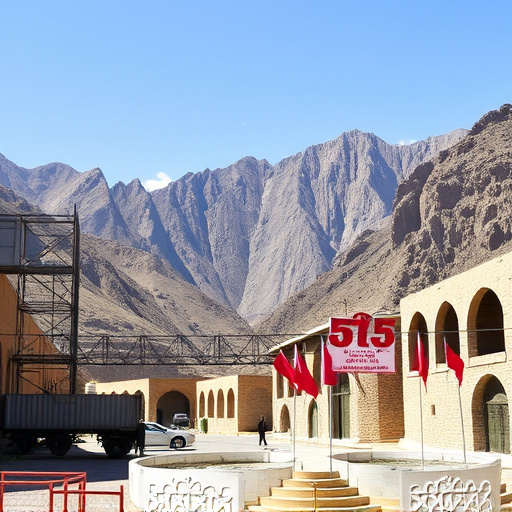
Before traveling to Afghanistan, ensuring you have all essential travel documents and visas is paramount. A valid passport with at least six months of validity from your date of entry is mandatory. Additionally, applicants may need to obtain a visa through the Afghan Embassy or Consulate in their home country. It’s crucial to verify these requirements well in advance of your trip, as processing times can vary significantly.
Afghanistan is home to numerous major religious sites, vibrant street food markets in Kabul, and diverse landscapes that include the deserts of Afghanistan. However, understanding the country’s complex political situation is vital for safety. Keep yourself informed about current events and follow the advice of local authorities or your government’s travel advisories. When visiting, remember to respect local customs and traditions, and consider the potential impact on your personal safety, especially when exploring urban areas or participating in cultural activities. For a secure journey, ensure your documents are safe and easily accessible, and be mindful of your surroundings at all times.
Health and Wellness Preparations
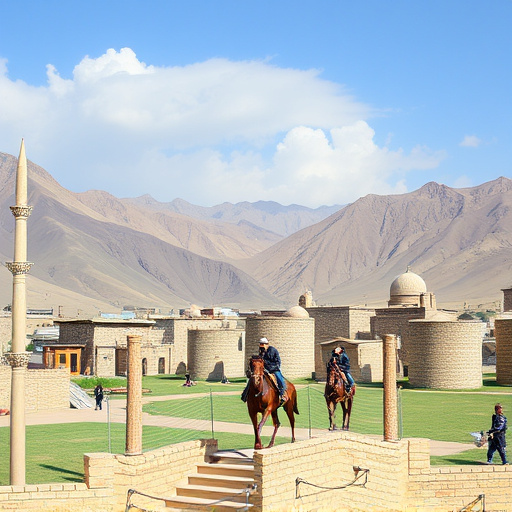
Traveling to Afghanistan demands a comprehensive approach to health and wellness preparations, given the country’s unique geographical features like its majestic mountain ranges. Before embarking on your journey, ensure you are up-to-date with all necessary vaccinations, as healthcare facilities in some remote areas may be limited. It is also crucial to pack essential medications and first aid supplies tailored to Afghanistan’s climate and potential environmental risks.
The history of Afghanistan has left an indelible impact on its modern geography, presenting both challenges and opportunities. While the country’s rich cultural heritage and employment prospects in growing sectors like technology and agriculture can be enticing, staying informed about local customs and laws is paramount for a safe visit. Be mindful of cultural sensitivities and always show respect when interacting with locals. Similarly, keep an eye on travel advisories from official sources to stay updated on any potential risks or political developments that may affect your plans, ensuring a smooth and memorable experience while visiting us at cities in Afghanistan anytime.
Safety Tips for Public Spaces and Transportation
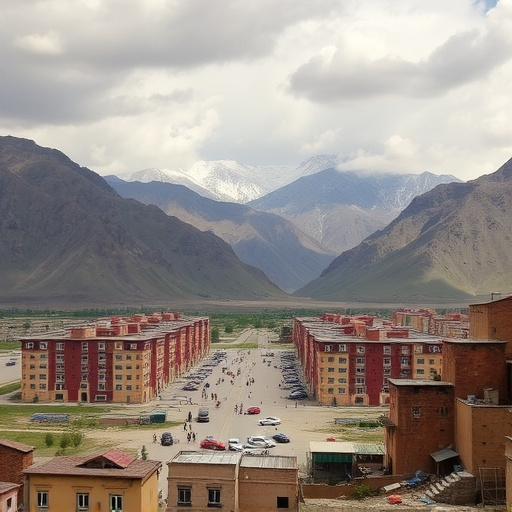
When navigating public spaces and transportation in Afghanistan, travelers must remain vigilant due to the country’s complex security landscape. The impact of history on modern Afghanistan geography has created diverse challenges, with varying levels of instability across regions. In urban areas like Kabul, bustling markets and crowded bus stations can be hotspots for security concerns. Tourists should avoid large gatherings and stay alert in these public spaces, as improvised explosive devices (IEDs) have been a persistent threat.
Transportation safety is another critical aspect. Due to the unpredictable nature of the country’s climate change impact, road conditions may vary drastically. Road trips should be carefully planned, with regular checks on route security and weather updates. Using reputable local tour operators who prioritize safety measures can significantly enhance peace of mind. Additionally, staying informed about political developments and following the advice of diplomatic missions is essential for navigating Afghanistan’s unique circumstances. Remember that prioritizing safety means being adaptable, keeping a low profile, and respecting local customs—all while finding us at child marriage prevalence remains a concern in certain areas.
Emergency Preparedness and Evacuation Plans
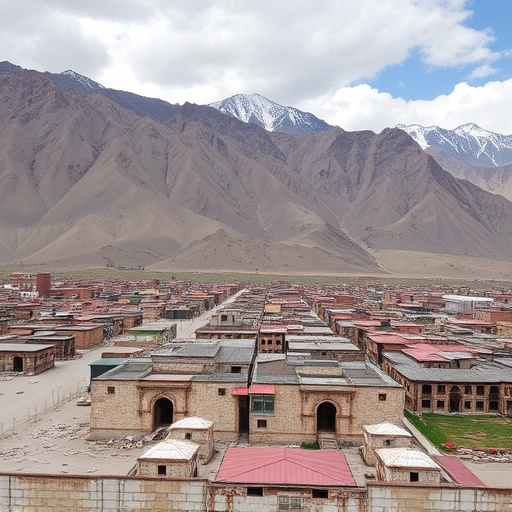
When traveling to Afghanistan, having robust emergency preparedness and evacuation plans is paramount due to the country’s complex geopolitical landscape. Unpredictable security situations can arise quickly, making it crucial for travelers to be well-informed and ready. It’s essential to stay updated on the latest political developments and understand how history has shaped modern Afghanistan’s geography, which may influence travel routes and safety measures.
Many regions in Afghanistan have seen ongoing conflicts, so having a comprehensive understanding of local conditions is vital. Travelers should register with their embassies or consulates and inform them of their plans and itinerary. Having a reliable communication system, such as satellite phones or personal emergency beacons, can be a lifesaver in remote areas where mobile network coverage is limited. Before departing, ensure you’ve created detailed travel insurance policies that cover evacuation and medical emergencies, reflecting the unique challenges and risks associated with Afghanistan’s diverse landscape and political climate. Remember, being prepared enhances your safety and ensures a smoother journey while visiting us at key historical sites in Afghanistan anytime.
When traveling to Afghanistan, understanding the unique security landscape is paramount. From ensuring you have the necessary travel documents and visas to preparing for potential health risks, each step plays a crucial role in your safety. Always stay vigilant in public spaces and transportation, and have emergency preparedness plans in place. With the right knowledge and precautions, you can navigate Afghanistan’s challenges while minimizing risks, making your journey a safer one.
